
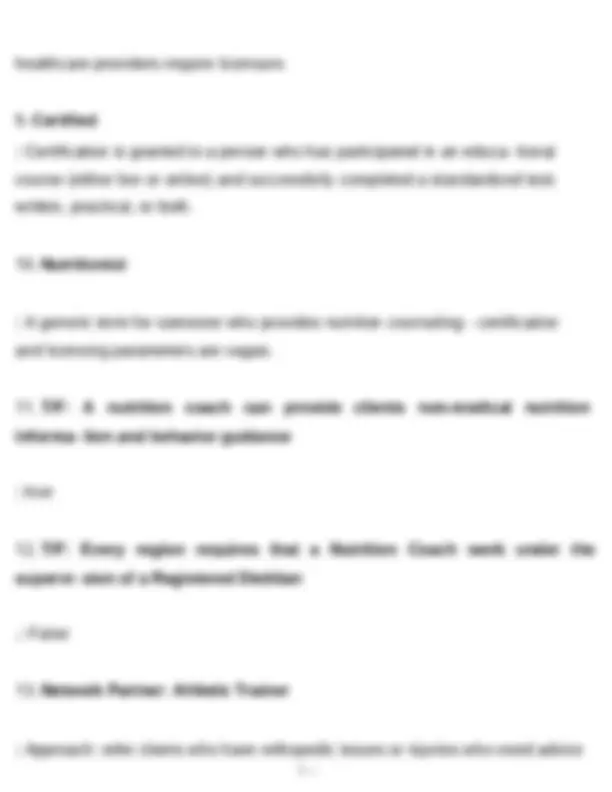

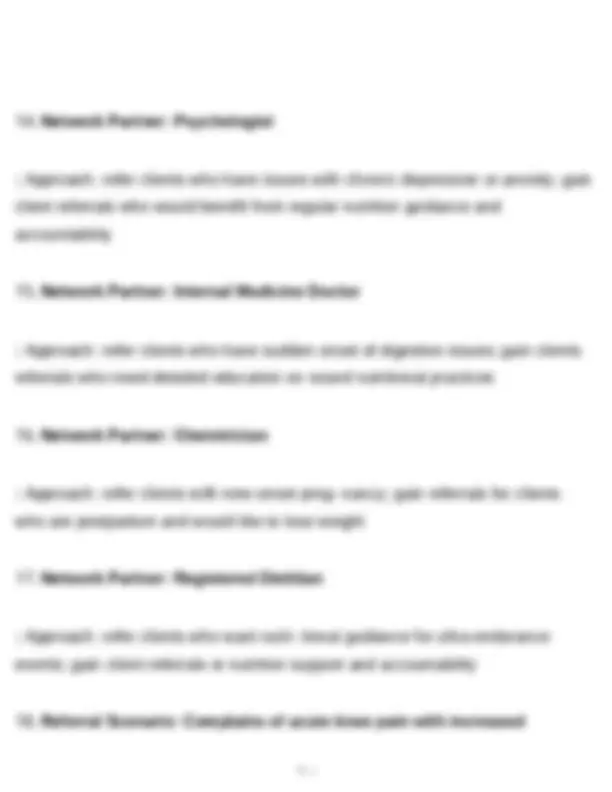
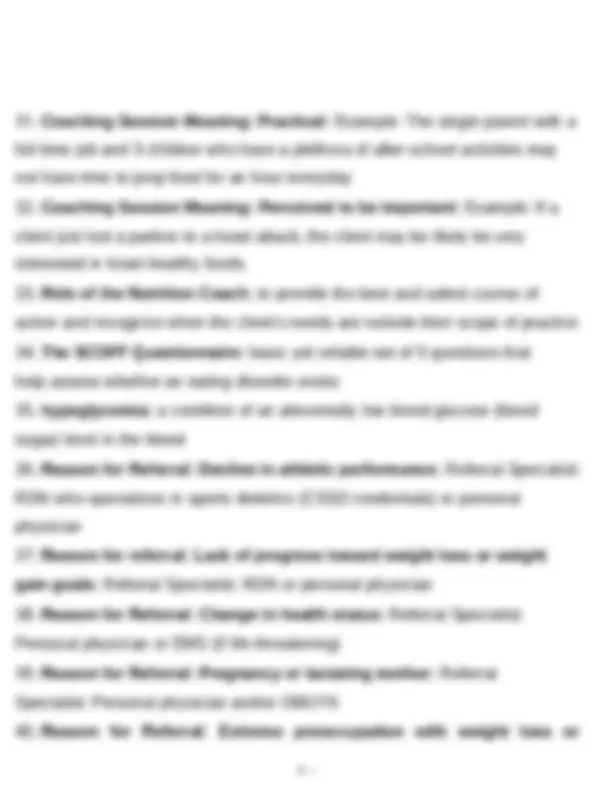
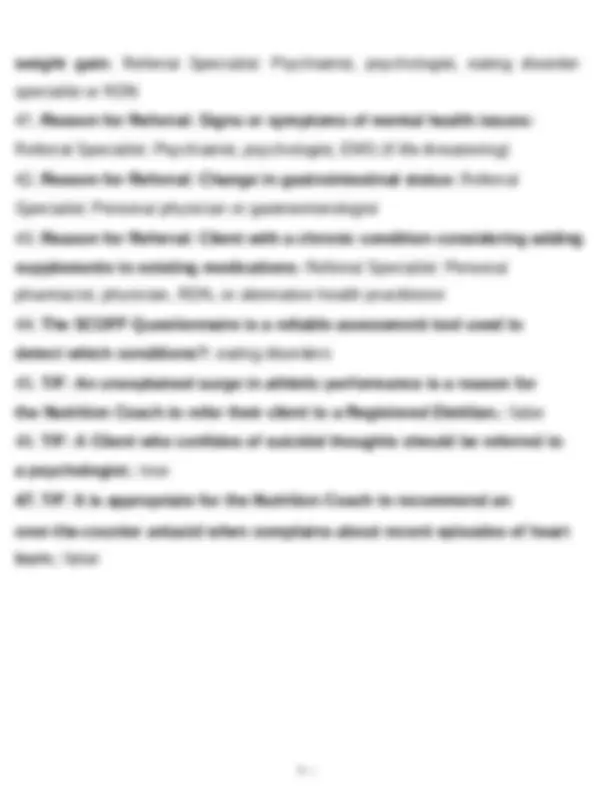
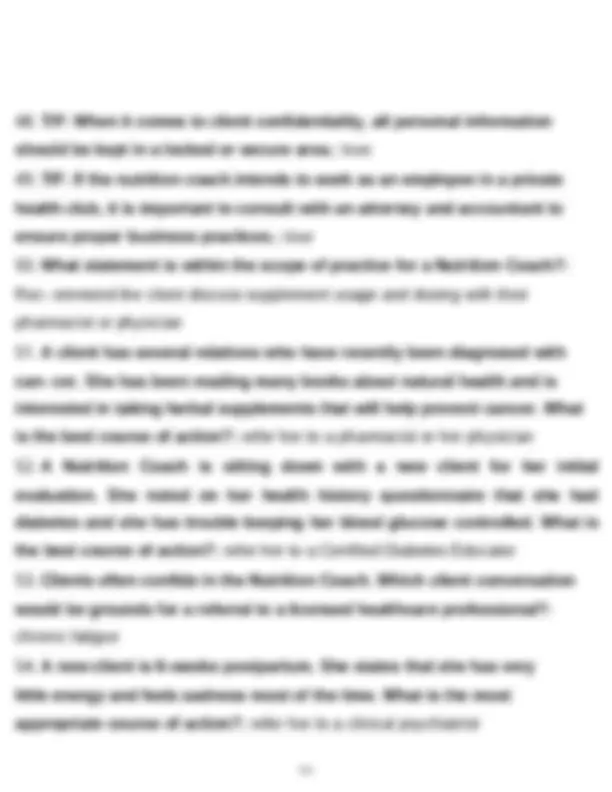
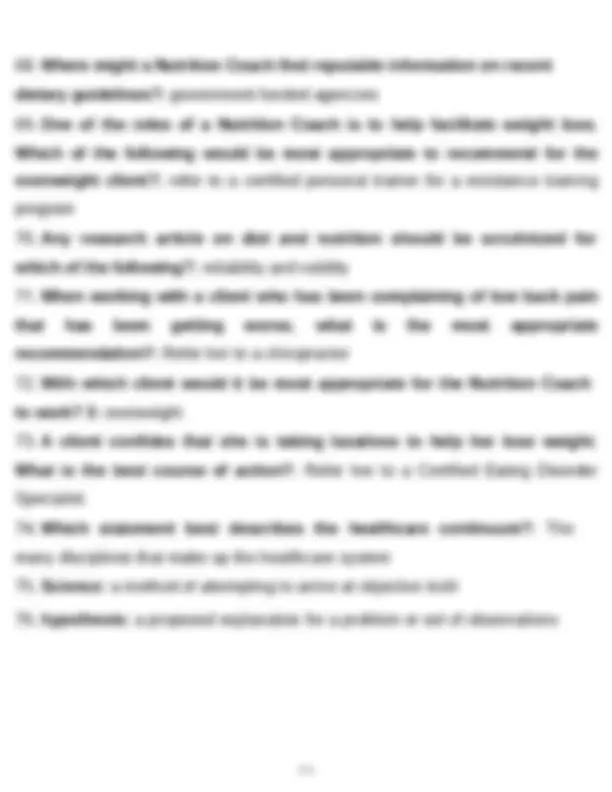
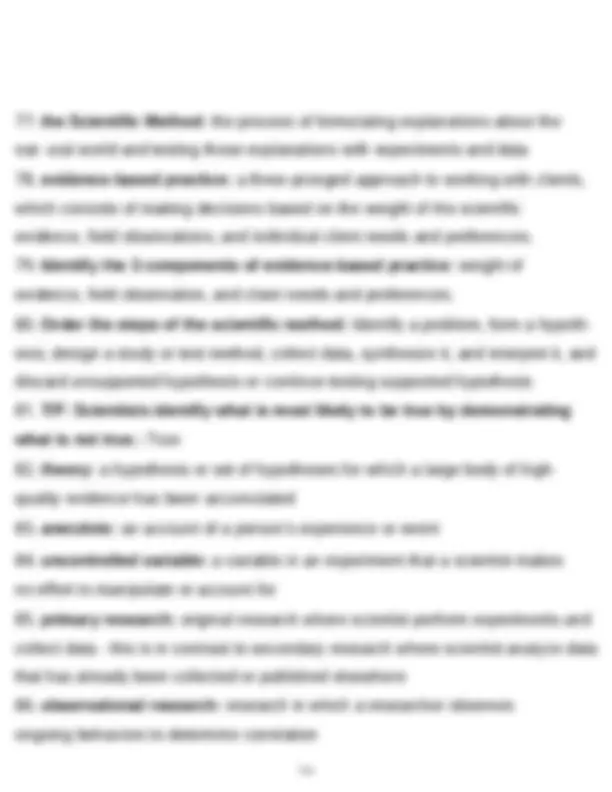
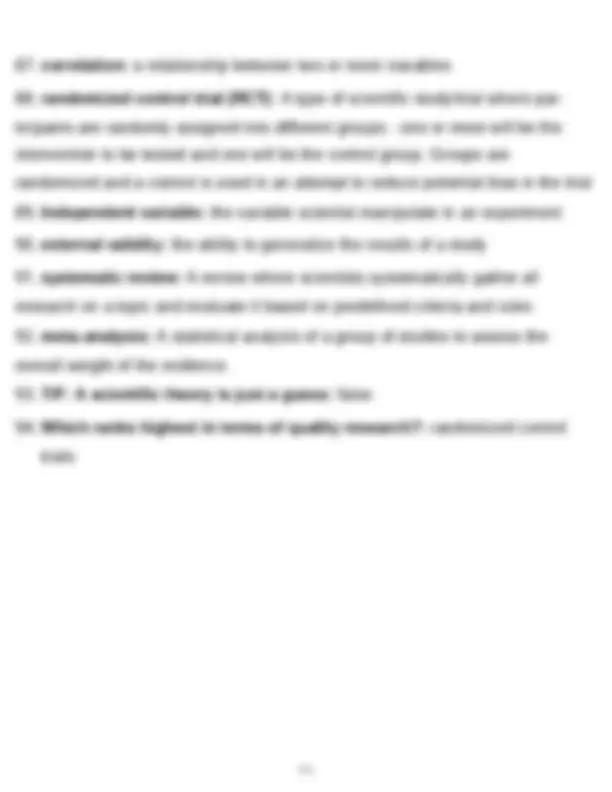


Study with the several resources on Docsity

Earn points by helping other students or get them with a premium plan


Prepare for your exams
Study with the several resources on Docsity

Earn points to download
Earn points by helping other students or get them with a premium plan
Community
Ask the community for help and clear up your study doubts
Discover the best universities in your country according to Docsity users
Free resources
Download our free guides on studying techniques, anxiety management strategies, and thesis advice from Docsity tutors
1. NASM nutrition exam study guide 2. How to prepare for NASM nutrition certification test 3. NASM nutrition exam practice questions 4. NASM certified nutrition coach exam tips 5. What to expect on NASM nutrition exam 6. NASM nutrition exam passing score requirements 7. Best resources for NASM nutrition exam preparation 8. NASM nutrition exam difficulty level 9. How long to study for NASM nutrition certification exam 10. NASM nutrition exam retake policy 11. NASM nutrition exam cost and registration process 12. NASM nutrition exam format and structure 13. NASM nutrition certification exam sample questions 14. NASM nutrition exam time limit 15. NASM nutrition exam online proctoring options 16. NASM nutrition exam calculator requirements 17. NASM nutrition exam study schedule template 18. NASM nutrition exam flashcards and mnemonics 19. NASM nutrition exam content outline breakdown 20. NASM nutrition exam vs other nutrition certifications
Typology: Exams
1 / 15

This page cannot be seen from the preview
Don't miss anything!










: A licensed healthcare professional or cer- tified allied health professional who works with those who have diabetes - 1000 contact hours in diabetes education is required for certification.
on fitness and rehab; gain athlete referrals who need assistance with weight loss and nutrition accountability